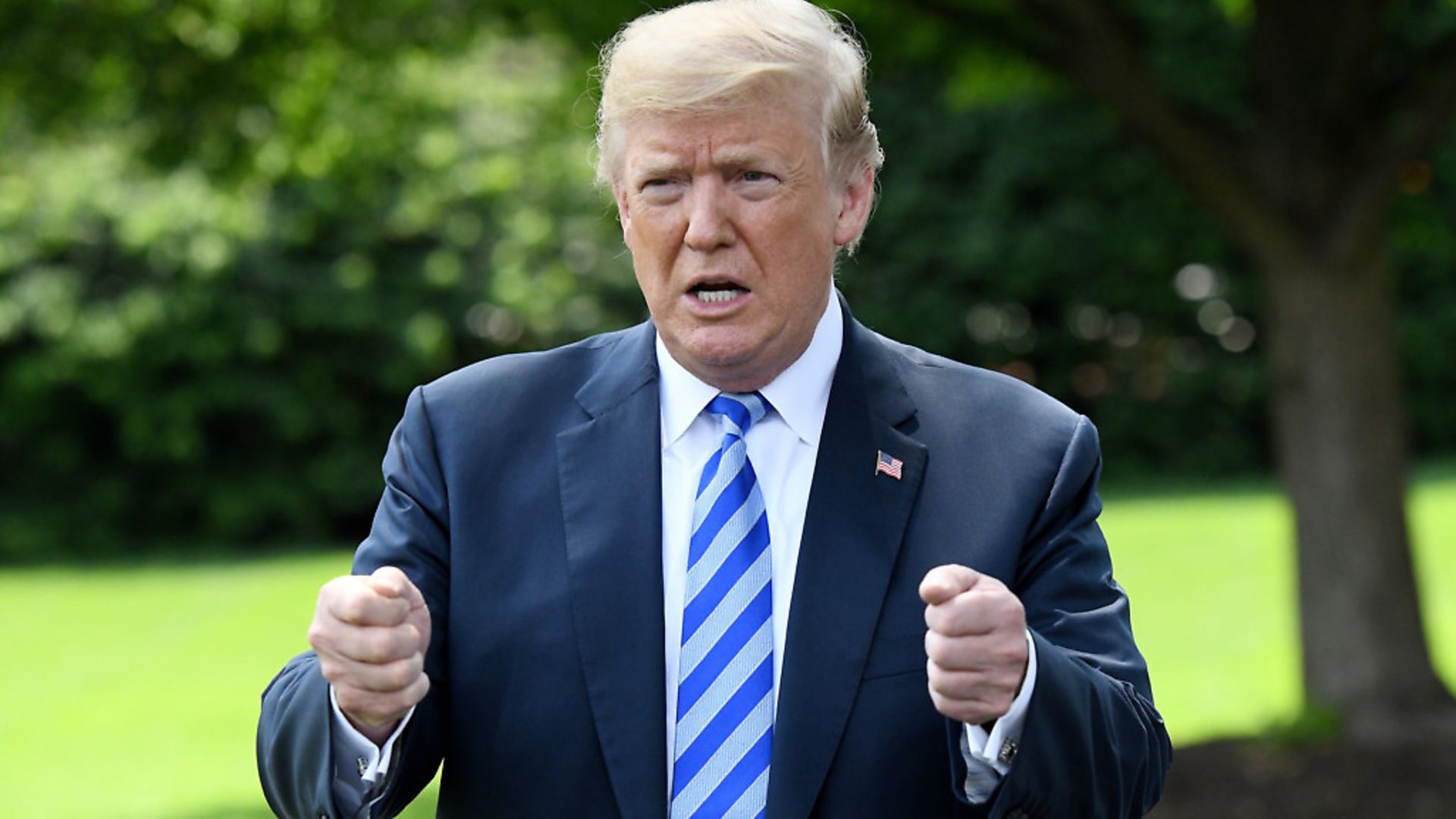
PAUL CONNEW looks ahead to Trump’s summit with Kim Jong-un.
Does it take a despot to know a despot? Is there Machiavellian method in the madness of Donald Trump? Big questions as the president prepares for Tuesday’s Singapore summit with North Korea’s leader Kim Jong-un.
Trump seems to have spent much of his preparation on Twitter arguing for his ‘absolute’ power to pardon himself in the case of his all-consuming obsession – Robert Mueller’s investigation into alleged collusion with Russia. He also spent it pardoning the conservative commentator and provocateur Dinesh D’Souza, amid hints of clemency to come for celebrity felons with past links to his own The Apprentice TV franchise. For observers, Trump’s activities come with a clear subtext, meant for any who may be caught up in the investigation: ‘Don’t collaborate and I’ll pardon you in return’.
A cursory scroll through the Trump Twitter feed in recent days shows how much of his time is currently consumed by the Mueller inquiry, the tone swinging between anger, incredulity and – increasingly – a sense of ‘victimisation’, and his pardoning power has become the latest theme to be promoted by the president and his loyalists.
The initial trigger for his most recent tirade was the New York Times obtaining a copy of 20-page letter Trump’s then legal team sent to Mueller in January, arguing the president was effectively above the law, could not be accused of obstruction of justice, did not have to testify and had the power to pardon himself – as well as others – and had the authority to terminate the investigation into any alleged criminality.
But, significantly, it also acknowledged the president did help draft a false statement issued by his son, Donald Jr, about the infamous election campaign Trump Tower meeting with Russians offering ‘dirt’ on Hillary Clinton.
This scuppered Trump’s previous public denials of involvement and clearly rattled him, as it reinforced the argument Mueller already has a prima facie obstruction of justice case.
Guided by his legal team chief and political strategist Rudy Giuliani, Trump seems poised to reject being questioned by the special counsel, a move throwing down the gauntlet to Mueller to seek to subpoena him.
Madness or Machiavellian methodology? Team Trump is buoyed by polls suggesting their concerted attacks on the Mueller probe as ‘overzealous’ and portraying the president as ‘victim’ are paying off.
A Gallup survey shows 75% of Republican supporters believe Trump ‘provides strong moral leadership as president’ and that ‘Mueller fatigue’ is gradually setting in, even among some Democrat voters.
Further polls indicate Republican and blue collar Democrat voters sympathise with Trump’s contentious claim that his trade war tariffs represent a ‘long overdue rebalancing’ of global trade, despite warnings from many economists that for every Rust Belt job saved, four more US jobs will eventually be lost elsewhere as a consequence, and that the global economy could ultimately face another catastrophic meltdown.
The Democrats remain slight favourites to win Congress in November, but new polls suggest it is no longer a lost cause for the GOP, while it looks likely the Republicans will cling onto control of the Senate.
Discrediting Mueller and promoting Trump as an all-powerful populist leader, discarding presidential niceties and norms, and even legalities, is now perceived as an electoral ace rather than a dead hand.
Polls also show cautious support for Trump’s Kim summit strategy, after 65 years of the US and North Korea remaining technically at war.
Influenced by Secretary of State Mike Pompeo, it is why Trump is talking of a negotiating ‘process’ rather than miraculous instant deals or theatrical walkouts over differing definitions of ‘denuclearisation’. That said, caution and de-escalation have never been among the president’s trademarks.
Warning: Illegal string offset 'link_id' in /mnt/storage/stage/www/wp-includes/bookmark.php on line 357
Notice: Trying to get property 'link_id' of non-object in /mnt/storage/stage/www/wp-includes/bookmark.php on line 37






